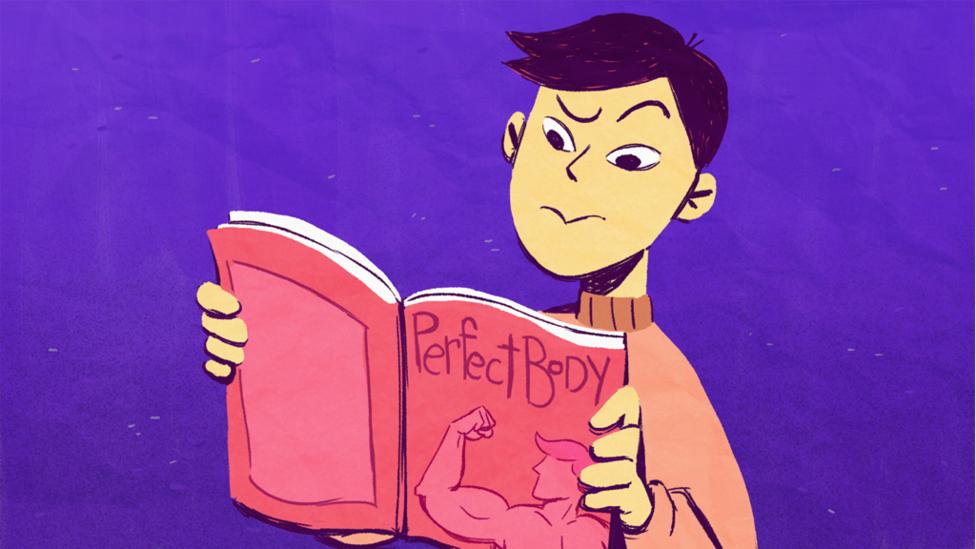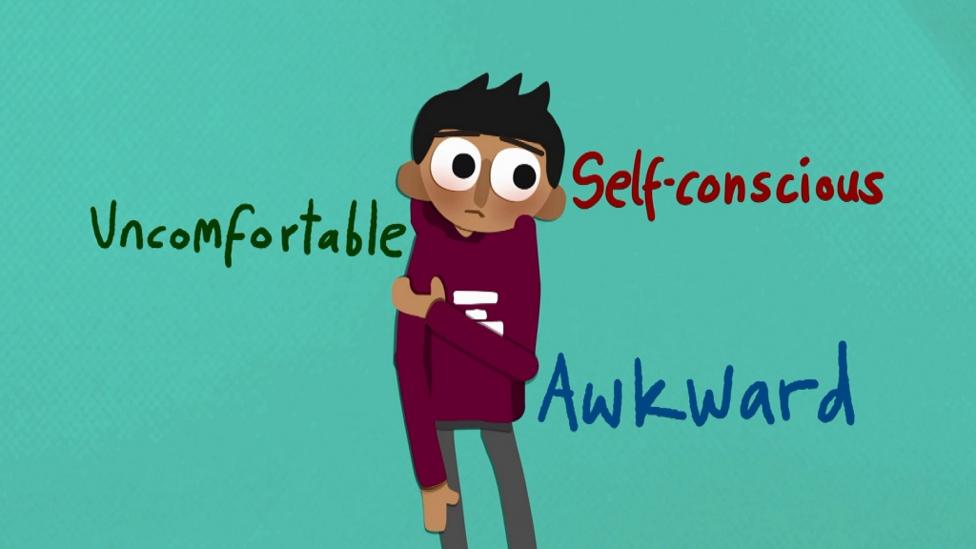Help me out - body image
Everybody is different ÔÇô and every body is amazing in its own way. The way we see ourselves, and how we feel about our bodies, can differ from person to person too.

What is body image?
Body image comes from the way we think about our faces and bodies ÔÇô and how we feel about how we appear to others. Body image isnÔÇÖt necessarily the image that you see in the mirror, itÔÇÖs how you feel about that image.
Body image can be positive or negative, or a bit of both.

What can affect the way we see ourselves?
Lots of things can affect the things we believe about our bodies.
We might compare ourselves to other people and look at the differences, e.g. they are taller or shorter, have different colour hair or have a different body shape.
We can also be influenced by celebrities, or the things we see on TV, online and in magazines ÔÇô although they probably donÔÇÖt look like that in real life!
Sometimes other people can make comments (good or bad) about the way we look, and these can stick in our minds, even long after the other person has forgotten they said anything!
All of these things contribute to the way we feel about our own body image.
What is a positive body image?
A positive body image is when we are happy and confident with our bodies.
It means we have a true and clear perception of our bodies (we see whatÔÇÖs really there and donÔÇÖt believe something about ourselves which isnÔÇÖt true).
If we have a positive body image, we accept and appreciate the natural way we look without wanting to change ourselves, and we donÔÇÖt worry about how others see us. Your body is very much a part of who you are, so accepting it is a very important part of how you accept yourself as a whole.
It also means remembering that our value as a person is not all wrapped up in our bodies ÔÇô thereÔÇÖs a lot more to us than just the way we look on the outside!
What is a negative body image?
Having a negative body image means feeling unhappy, uncomfortable or upset about the way we think we look.
As we grow up and our bodies change itÔÇÖs natural to feel a bit uncomfortable or awkward, but we shouldnÔÇÖt feel like that all the time.
People with a negative body image can focus on the parts of their bodies they donÔÇÖt like, and pay less attention to the parts they do like. Sometimes weÔÇÖll hear someone say something negative about our body, and then we start to think itÔÇÖs true.
We can also have an unrealistic or exaggerated idea of our own appearance, and donÔÇÖt see ourselves as we really are. We do this when we compare our bodies to others that we think are ÔÇťbetterÔÇŁ ÔÇô bodies arenÔÇÖt better or worse, only different!
Having a negative body image can not only make us feel low or upset, it can also mean we might not take proper care of our bodies, such as by not eating well or getting enough sleep. We can even get so hung up on our body image that we hardly think about anything else.
If you feel unhappy with your body, or find yourself worrying a lot about how other people see you, talk to someone you trust about how you feel.
How can we improve the way we feel about our bodies?
There are lots of things we can do to help build a positive body image.
Remember that differences are a good thing and make us all unique ÔÇô there is no such thing as perfect!
Think about all the parts of your body you do like, and focus your attention on telling yourself positive things about the way you look.
DonÔÇÖt pay attention to bullies or people who criticise others because of the way they look. DonÔÇÖt let their negative words get into your head.
Try not to compare yourself to other people; imagine if everyone in the world looked the same ÔÇô it would be very boring!
Be a good role model by having a positive attitude about yourself.
Remember that lots of images we compare ourselves to, in magazines and in movies, are not really accurate ÔÇô lots of tricks are used to make those bodies and faces look ÔÇťperfectÔÇŁ.
You only have one body, and it is something you should be proud of and celebrate.
For more information about organisations which offer advice and support, check out the Advice Helplines page.